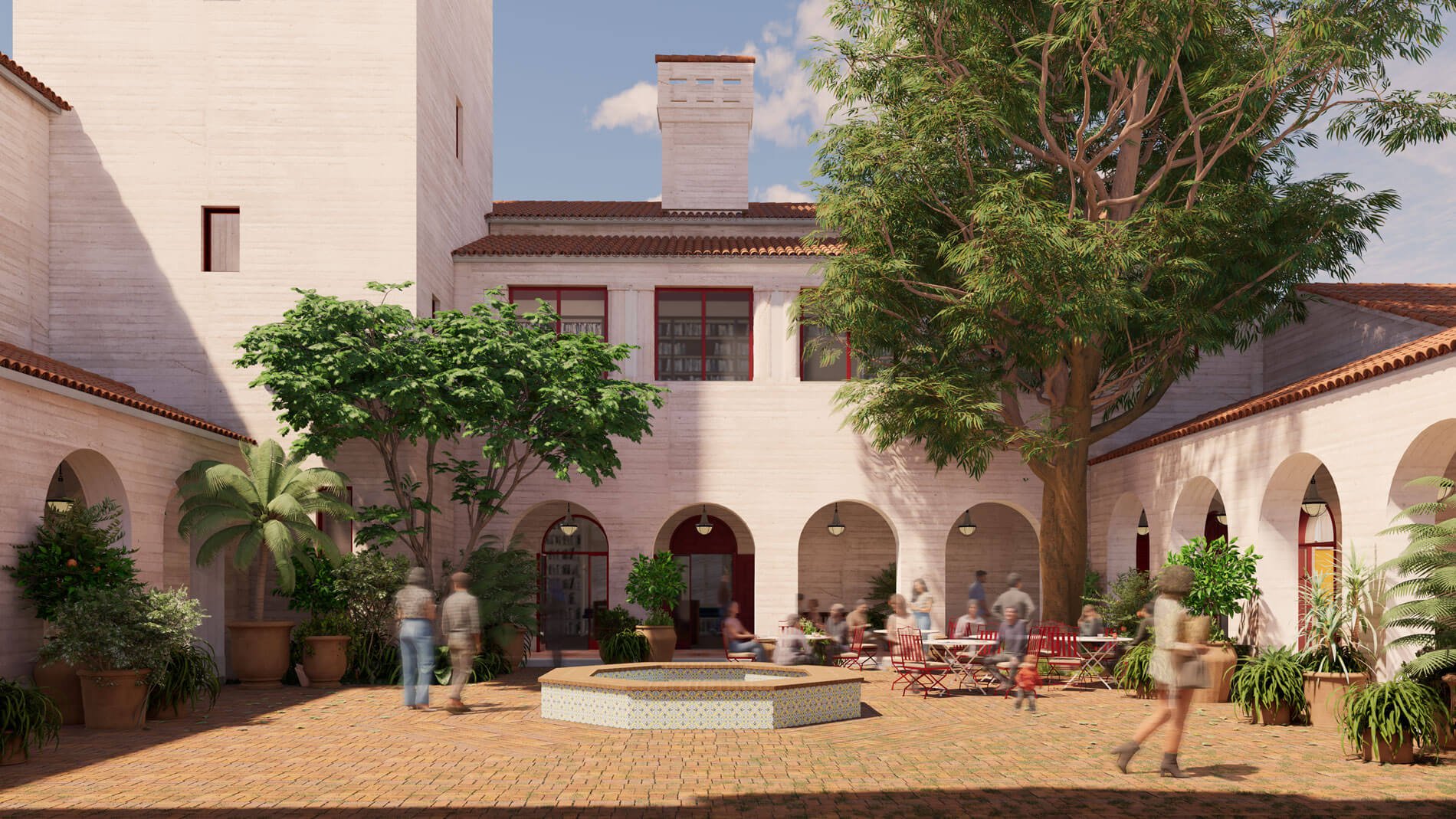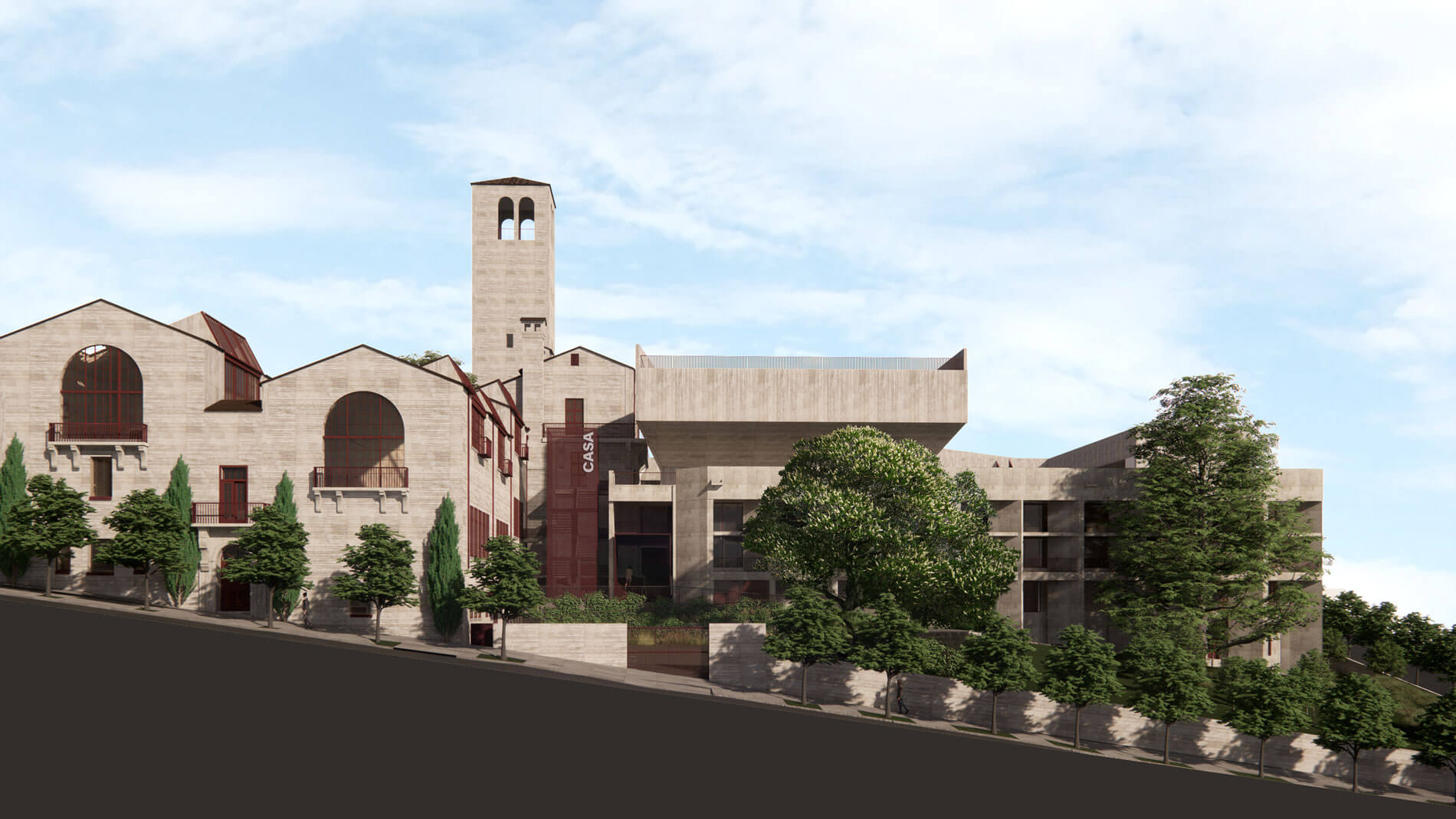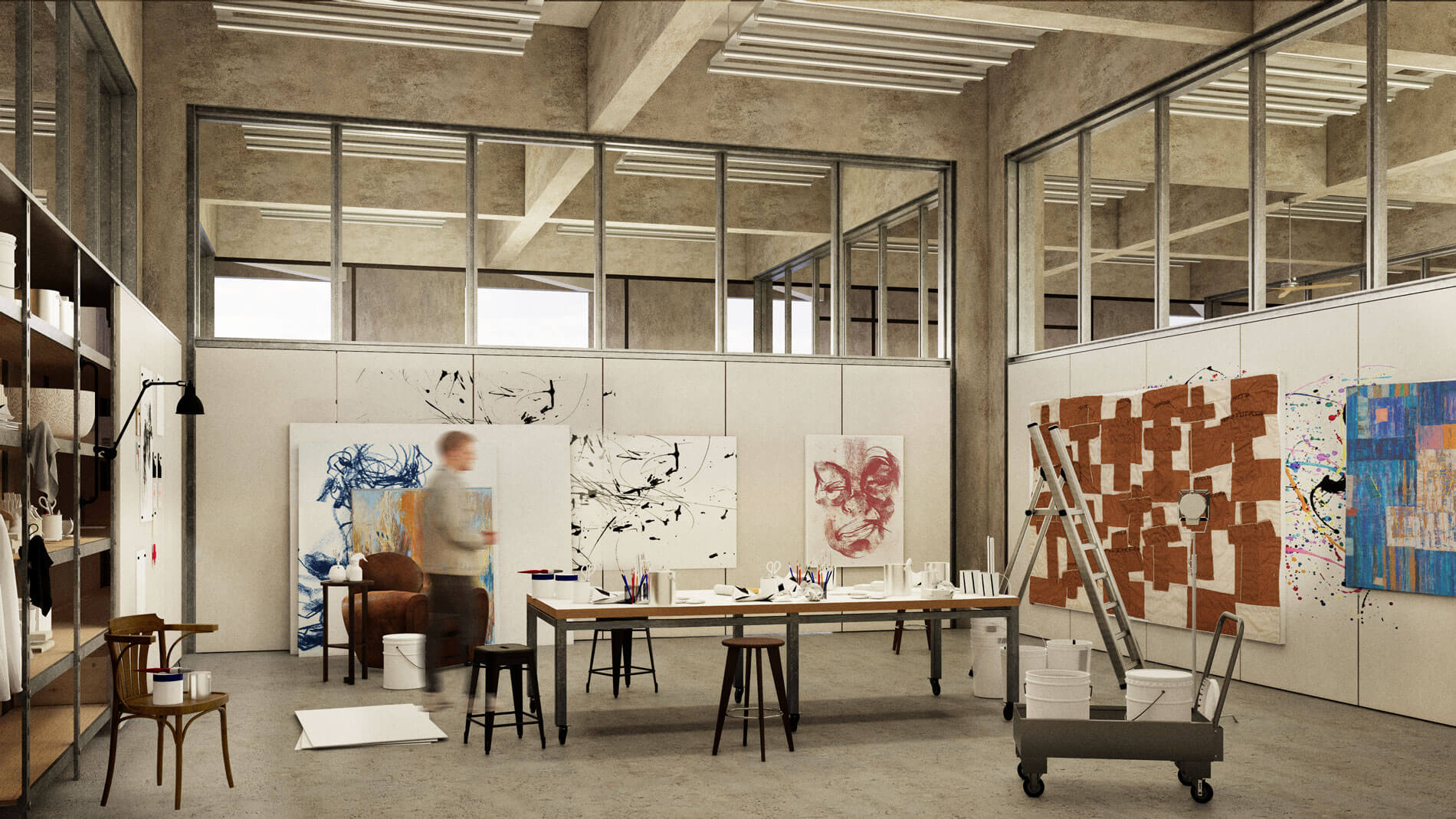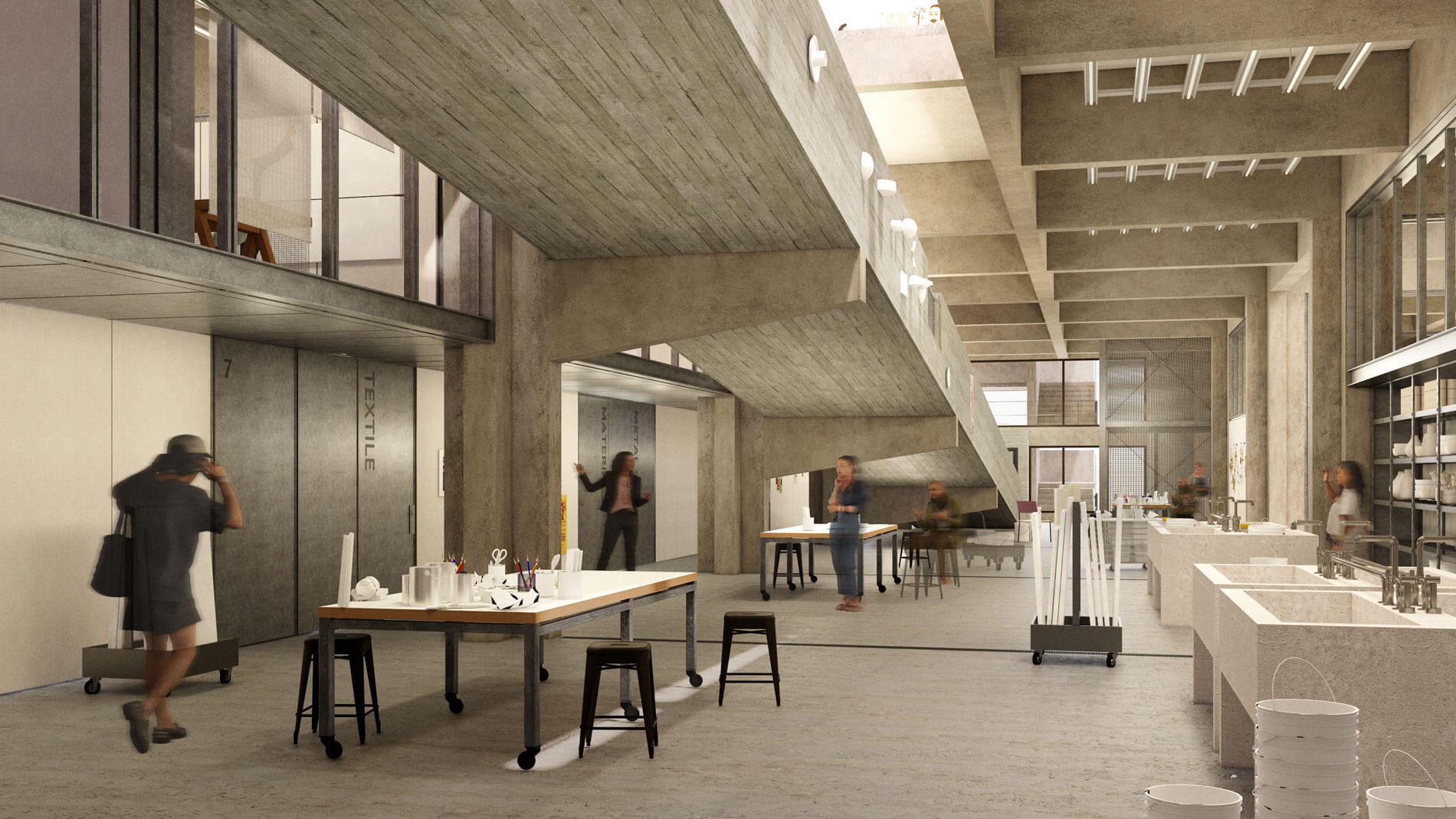A new, experimental arts center—California Academy of Studio Arts (CASA)—will move into the former San Francisco Art Institute (SFAI) campus, a Spanish colonial-style building by Bakewell & Brown, with a 1931 mural by Diego Rivera, and a Brutalist 1960s addition by Paffard Keatinge-Clay.
The Bay Area campus was landmarked in 1977, but SFAI closed in 2022 after 151 years in operation citing low enrollment, unpaid debt, and San Francisco’s white hot real estate market that’s burning a hole through its arts community.
Laurene Powell Jobs subsequently founded a new nonprofit, BMA-Institute, to bring the campus back to life, albeit with a new anchor institution.

Jensen Architects was tapped to renovate the historic ensemble last summer by BMA-Institute, after Jobs had purchased the campus. Although an architect had been named, it was still unsure at that time who the anchor institution would be and how the campus would be used.
BMA-Institute announced today the campus will operate as the California Academy of Studio Arts, still under Jobs’s tutelage. CASA will support a range of media and visual practices, from sculpture, ceramics, textiles, and emerging technologies.
CASA launched a series of global “Listening Forums” to inform its programming led by artist and CASA Director Abbye Churchill and Hans Ulrich Obrist, curator and artistic director of the Serpentine Galleries.

Jensen Architects will serve as executive design architect, Laplace as lead design architect, and Page & Turnbull as historic preservation architect. Rivera’s beloved mural, The Making of a Fresco Showing the Building of a City, will be restored and open to the public. There will also be a publicly accessible cafe and bookstore.
CASA’s pedagogy is inspired by Black Mountain College, the avant-garde North Carolina school where Anni and Josef Albers, Walter Gropius, Buckminster Fuller, Willem de Kooning, Ruth Asawa, Merce Cunningham, and other luminaries all taught after Nazis shut down the Bauhaus.
The campus will host yearlong, studio-based programs for up to 30 emerging visual artists, CASA said. It will be a free, albeit unaccredited program providing artists studio space, shared workshops, mentorship from practicing artists, and platforms for public engagement.
There will be exhibitions, performances, and artist talks to make the campus lively again.


“As CASA embarks on the tremendous opportunity to create a new framework for its emerging artists, we felt it was essential to engage in a period of deep research,” Obrist and Churchill shared in a joint statement.
“By listening directly to the needs of the creative community, CASA hopes to develop an experimental program that is responsive to the needs of artists working today and for generations to come,” Obrist and Churchill added.
More design updates will come later this year.
→ Continue reading at The Architect's Newspaper
